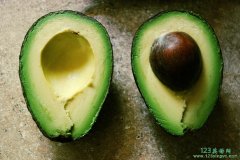Your age reflects your state of mind, which is something
编辑:高中作文网 阅读 次Your age reflects your state of mind, which is something ___41___ despite different family, social or cultural backgrounds.
In Western culture, 21 was the age at which young people ___42___ received a key to their parents’ door, as a symbol of entering adulthood. Now, the age of 21 is a time when people ask ___43___: where to go from here?
The 21-year-old college students are thrilled at the ___44___ of starting their careers within a year. But in the current global recession, some have to scale down their ambitions. They will realize that being realistic, instead of ___45___, is the solution.
The age of 21 is also a time to step out of your comfort zone. It’s a time to ___46___ the outside world, when you are ready to do so. Being open-minded is not a task to be completed, or a fashion to be pursued. It’s a bridge to an/a ___47___ view of oneself.
Reaching the age of 21 encourages young people to shoulder responsibility for their own lives. Also, it’s a time when they begin to take the interests of ___48___ into consideration.
Whether traveling, partying or shopping, 21-year-olds remain ___ 49___while having fun. They value supportive relations between countries. They see a country’s rise as a new ___50___ of global stability in difficult times.
I J D E G A C F K H
Below are some major cultural touchstones of young Chinese people born in the 1990s. They are ___51___ the results of both online discussions and our observations. We fully understand that the Class of 2014 has shown a rapidly evolving ___52___ of individuality.
Lifestyle
● They don’t read the instruction manuals that come with electrical___53___.
●With friends, they never stop talking; with strangers, they never ___54___ the ice.
●They seldom pass a reflective surface without checking their___55___, especially hairstyle.
Technology
●A new QQ name lasts one day, and a new ringtone lasts two weeks.
●Posts with more than 500 words are too long.
●They ___56___ make phone calls. Text messages are preferable.
Attitude toward the world
●Nobody else can really understand them.
●Never ask a question. Just ___57___it for the answer!
●Although the media favor stories of angst (忧虑)and___58___, the large majority of the youth are happy, or at least content.
___59___ with China’s Class of 2014, the American peers show similar traits ___60___ differences.
Lifestyle
●Very few of today’s students know how to write in cursive.
●Leasing (租赁) ___61___students to upgrade their cars more regularly.
●Students don’t realize that, when another person ___62___to their wrist, they are asking for the time. (They don’t wear watches!)
Technology
●E-mail is just too slow, and students seldom, ___63___, use snail mail (平信).
●he first home computer that today’s students ever touched was an Apple II or Mac II; such computers can now only be found in ___64___.
Attitude toward the world
●“Go West, young college grad,” has always implied “and don’t stop until you get to Asia--- and learn Chinese along the way.”
●A quarter of all freshmen entering college this ___65___have at least one immigrant parent.
51. A. leading to B. heading for C. made from D. based on
52. A. sense B. passion C. symbol D. passing
53. A. appliances B. faults C. engineers D. bulbs
54. A. touch B. taste C. break D. melt
55. A. face B. look C. picture D. body
56. A. habitually B. frequently C. seldom D. never
57. A. ignore B. search C. dismiss D. Google
58. A. society B. shortage C. shock D. sweet
59. A. Contrast B. Compared C. Accompanied D. Access
60. A. rather than B. as great as C. instead of D. as well as
61. A. pushes B. allows C. forces D. helps
62. A. points B. returns C. comes D. sends
63. A. however B. for ever C. if ever D. hardly ever
64. A. universities B. stadiums C. Galleries D. museums
65. A. fall B. way C. trip D. day
DAACB CDCBD BACDA



